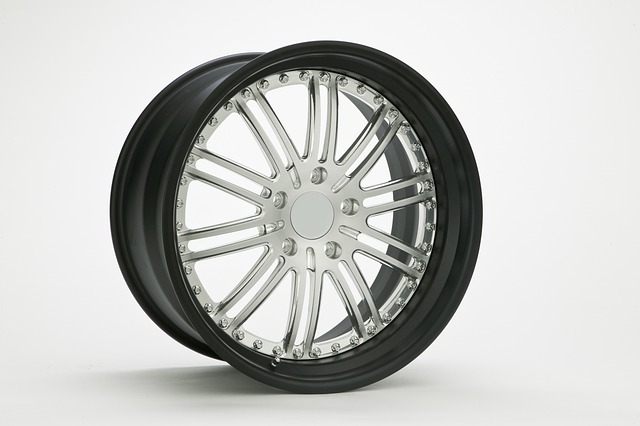VIN verification ensures a vehicle's authenticity and history through its unique 17-character code. This process confirms manufacturer, model year, plant, and equipment details by cross-referencing with databases. Online and on-site inspections offer different levels of accessibility and detail, catering to various buyer needs. DMV verification is convenient but may not uncover all issues, while independent VIN inspectors provide specialized knowledge and faster turnaround times. Choosing a method depends on individual needs; dealers opt for detailed reports from certified inspectors, while private buyers can use online services or trusted platforms.
In today’s digital era, ensuring a vehicle’s authenticity through VIN (Vehicle Identification Number) verification is crucial. Whether you’re a car dealer, buyer, or private owner, understanding and selecting the right VIN verification method can save time and money. This comprehensive guide compares various VIN verification options, from online services to on-site inspectors, and explores the pros and cons of using DMVs versus independent services. Learn how to make an informed decision based on your unique needs, ensuring peace of mind with a verified VIN number.
- Understanding VIN Verification: The Basics and Why It Matters
- Different Types of VIN Verifiers: Online vs On-Site Inspectors
- Pros and Cons of Using DMV for VIN Verification vs Independent Services
- How to Choose the Best VIN Verification Option for Your Needs?
Understanding VIN Verification: The Basics and Why It Matters

Understanding VIN Verification: The Basics and Why It Matters
VIN verification, or Vehicle Identification Number (VIN) checking, is a critical process that ensures the authenticity and history of a vehicle. A VIN is a unique 17-character alphanumeric code assigned to every vehicle manufactured worldwide. This code acts as a digital fingerprint, providing valuable insights into the vehicle’s past, including its original manufacturer, model year, assembly plant, and specific equipment. VIN verification involves cross-referencing this number against reliable databases to confirm its validity and retrieve associated information.
The importance of VIN verification cannot be overstated. It plays a pivotal role in several aspects, from ensuring the safety and legality of a used car purchase to aiding insurance companies and law enforcement in identifying stolen vehicles. A trusted VIN verifier or inspector can help you access crucial details like accident history, odometer readings, previous ownership changes, and outstanding loans or liens, thus empowering you to make informed decisions when buying or selling a vehicle. Services like DMV VIN verification and local VIN inspection near me are readily available, making it easier than ever to verify a VIN number and stay protected.
Different Types of VIN Verifiers: Online vs On-Site Inspectors

When it comes to VIN verification, there are two primary types of verifiers: online and on-site inspectors. Online VIN verifiers offer a convenient, paperless process where individuals can simply enter their vehicle’s unique VIN number into an automated system. This method is often preferred for its quick turnaround times and accessibility from the comfort of home or office. It’s ideal for those who need to verify a vehicle’s history swiftly and efficiently without leaving their location.
On the other hand, on-site VIN inspectors provide a more traditional, hands-on approach. These professionals physically inspect the vehicle at a designated location, usually a garage or dealership. This method ensures a thorough examination of the car, including checking for any signs of damage, tampering, or odometer rollback. It’s particularly valuable for those seeking a detailed, comprehensive verification, especially when purchasing a used vehicle and wanting to ensure its authenticity.
Pros and Cons of Using DMV for VIN Verification vs Independent Services

Using the Department of Motor Vehicles (DMV) for Vehicle Identification Number (VIN) verification has its advantages and disadvantages compared to independent VIN verification services. One benefit of opting for DMV vin verification is convenience; it’s often a one-stop process, as you can complete it during your regular driver’s license or vehicle registration visit. This method is also generally more affordable since most governments incorporate this service into existing fees without additional charges. Additionally, government agencies typically maintain extensive databases, ensuring accurate and up-to-date VIN information.
On the other hand, independent VIN verification services offer specialized expertise. These third-party vin inspectors are trained to spot potential issues or discrepancies that might be missed by a standard DMV inspection. They can provide detailed reports, including historical vehicle data, which is especially useful for classic car enthusiasts or those looking to purchase a used vehicle. Independent services also offer more flexibility in terms of scheduling and may provide faster turnaround times for results, making them preferable for those needing swift vin verification.
How to Choose the Best VIN Verification Option for Your Needs?

When choosing the best VIN (Vehicle Identification Number) verification option for your needs, consider a few key factors. First and foremost, understand why you require a VIN verification in the first place. Are you a car dealer looking to ensure the vehicle’s history is clear? Or are you an individual trying to verify the authenticity of a used car purchase? Different needs call for different levels of scrutiny.
For professional dealers, a comprehensive VIN inspection by a certified VIN inspector may be the best option as it provides detailed reports and ensures compliance with legal standards. On the other hand, if you’re a private buyer, a straightforward online VIN verification service through trusted platforms or official government databases (like DMV vin verification) could offer sufficient peace of mind without breaking the bank. Remember to check for user reviews and the level of detail provided by each option to make an informed decision that aligns with your specific requirements.
When choosing a VIN verification service, whether you opt for an online or on-site vin inspector, understanding the pros and cons of each option is key. For quick, convenient, and often more affordable services, online VIN verifiers are a solid choice. However, for a more thorough inspection and immediate results, particularly when dealing with rare or classic vehicles, visiting your local DMV for VIN verification can be preferable. Ultimately, selecting the best VIN verification option depends on your specific needs, budget, and desired level of service. By considering these factors, you can ensure your vehicle’s history is accurately and reliably verified.



